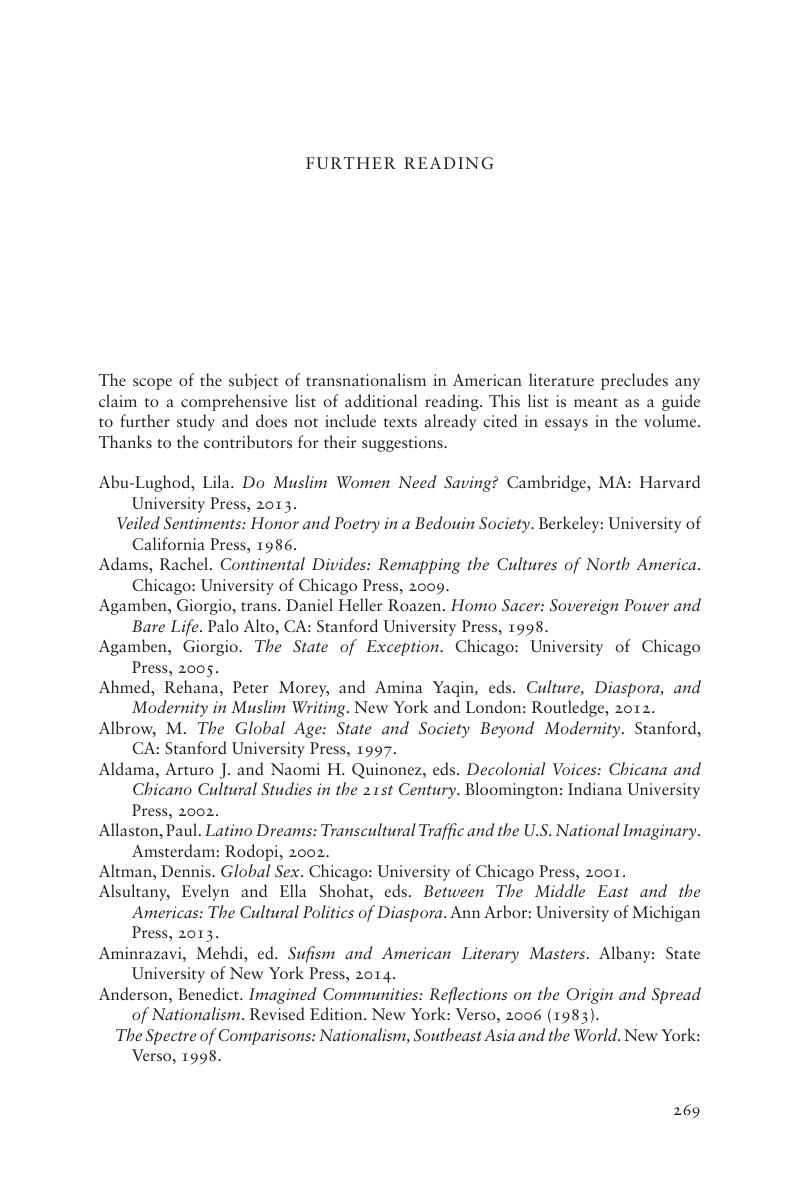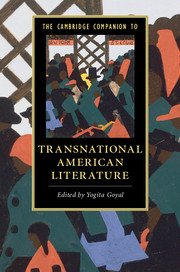Book contents
- The Cambridge Companion to Transnational American Literature
- The Cambridge Companion to Transnational American Literature
- Transnational American Literature
- Copyright page
- Contents
- Contributors
- Chronology
- Introduction: The Transnational Turn
- Part I Shape of the Field
- Part II Literary Histories
- Part III Critical Geographies
- Part IV Literature and Geopolitics
- Further Reading
- Index
- Cambridge Companions to…
- References
Further Reading
Published online by Cambridge University Press: 25 March 2017
- The Cambridge Companion to Transnational American Literature
- The Cambridge Companion to Transnational American Literature
- Transnational American Literature
- Copyright page
- Contents
- Contributors
- Chronology
- Introduction: The Transnational Turn
- Part I Shape of the Field
- Part II Literary Histories
- Part III Critical Geographies
- Part IV Literature and Geopolitics
- Further Reading
- Index
- Cambridge Companions to…
- References
Summary

- Type
- Chapter
- Information
- The Cambridge Companion to Transnational American Literature , pp. 269 - 288Publisher: Cambridge University PressPrint publication year: 2017



